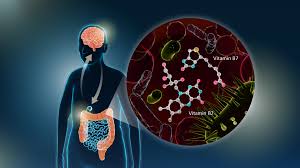Parkinson’s Disease : Recent Study

A recent research has proposed a significant shift in understanding Parkinson’s Disease (PD) through the “gut-first hypothesis”, suggesting a gut-brain connection in its onset and progression.
- The research is significant as it may shift the understanding of the diagnosis, development and treatment of this neurodegenerative disorder.
- The “gut-first hypothesis” suggests that PD may begin in the gut, with implications for understanding disease progression and therapeutic strategies.
- The gut microbiome spans from the mouth to the colon. It is the network of microorganisms — bacteria, viruses, fungi and more — and their collective genetic material that lives within the intestinal tract.
- The research identifies gastrointestinal symptoms, like constipation, as early signs of PD, potentially reshaping diagnosis and treatment approaches.
- Abnormal protein aggregates (Lewy bodies) linked to PD are found in both the gut and brain, indicating a complex interplay in disease development.
- Lewy bodies are primarily composed of alpha-synuclein, a protein that misfolds and clumps together, contributing to the death of dopamine-producing neurons in the brain.
- Parkinson’s Disease (PD) is a progressive neurodegenerative disorder marked by motor symptoms like tremors, rigidity, bradykinesia (slow movement), and postural instability. Non-motor symptoms include cognitive issues, mental health disorders, sleep disturbances, pain, and sensory problems.
- Bradykinesia means slowness of movement and speed (or progressive hesitations/halts) as movements are continued.
- The exact cause of Parkinson’s disease is not fully known yet, but it is believed to involve a combination of genetic and environmental factors.
- It is primarily characterised by the loss of dopamine-producing neurons in the brain, leading to motor and non-motor symptoms.




